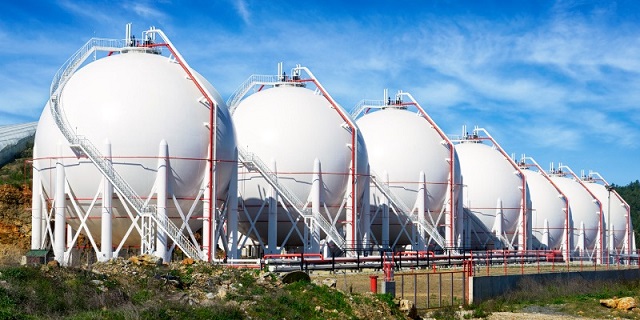Uncategorized
Ukraine urges NATO to deploy ships in dispute with Russia

KIEV, Ukraine — The president of Ukraine is urging NATO to deploy warships to the Sea of Azov, a proposal that has been sharply criticized by Russia as a provocation that could worsen tensions between the two countries following a weekend confrontation in the waters off the Crimean Peninsula.
U.S. President Donald Trump said Thursday he was
In an interview published earlier Thursday with the German daily Bild, Ukrainian President Petro Poroshenko laid out his hope that NATO would “relocate naval ships to the Sea of Azov in order to assist Ukraine and provide security” against Putin’s expansionist ambitions.
The Russian coast guard fired on and seized three Ukrainian vessels and their crews on Sunday. Russia alleged the Ukrainian vessels had failed to obtain permission to pass from the Black Sea into the Sea of Azov through the Kerch Strait. Ukraine insisted its vessels were operating in line with international maritime rules in the strait, which separates Russia’s mainland and the Crimean Peninsula that it annexed from Ukraine in 2014.
While condemning the Russian action, NATO is not expected to send ships to the area, a deployment that could trigger a confrontation with Russia. A 2003 treaty between Russia and Ukraine stipulates that permission from both countries is required for warships from anywhere else to enter the internal sea.
NATO spokeswoman Oana Lungescu said the alliance already has a strong presence in the region, and that NATO ships routinely patrol and conduct exercises in the Black Sea, especially those from Bulgaria, Romania, and Turkey, which border the sea.
German Chancellor Angela Merkel said early Thursday that she plans to press Putin at the upcoming G-20 summit in Argentina to urge the release of the Ukrainian ships and crews and to de-escalate the situation.
“We can only resolve this in talks with one another because there is no military solution to all of these conflicts,” she said.
It was not clear whether Merkel knew of Poroshenko’s call for NATO’s deployment when she spoke.
Trump tweeted his decision to cancel a meeting with Putin this weekend. Trump, who was en route to Buenos Aires for the G-20 summit, said he would not be meeting Putin because “the ships and sailors have not been returned to Ukraine from Russia.”
The Kremlin said it has not been notified of a cancellation. Russian news agencies quoted Dmitry Peskov, Putin’s spokesman, as saying that the Kremlin only learned of the cancellation from Trump’s tweet.
Peskov said the cancellation means that Putin will have “a couple of more hours” for “useful meetings” with other leaders of the world’s 20 largest economies.
The Ukrainian government said Russia has blocked commercial traffic to and from Ukrainian ports on the Sea of Azov, which Russia quickly denied.
“Putin wants nothing less but to occupy the sea,” Poroshenko said. “The only language he understands is the unity of the Western world.”
Putin on Wednesday criticized the West for what he described as connivance with Ukraine’s “provocation.”
“The authorities in
In response to Sunday’s events, Ukraine has imposed martial law in parts of the country. Putin accused Poroshenko of provoking the naval incident in a bid to impose martial law to shore up his sagging popularity and sideline competitors ahead of a presidential election in March.
Peskov said Poroshenko’s request for NATO warships is “clearly aimed at provoking further tensions,” adding that it was driven by “electoral and domestic policy motives.”
Poroshenko said that martial law wouldn’t restrict travel, cash withdrawals or currency purchases by Ukrainians, but Russians will face some unspecified constraints.
Ukraine’s Ministry of Infrastructure says Russia has blocked 35 merchant ships from leaving or entering the Sea of Azov since Wednesday.
The ministry said 18 ships have been stuck in the Black Sea, waiting to pass through the Kerch Strait into the Sea of Azov. Another 17 vessels were unable to leave the Ukrainian ports of Mariupol and Berdyansk on the Sea of Azov, it said.
Peskov insisted that Russia hasn’t imposed any restrictions on the ships’ passage, adding that a possible logjam could be linked to poor weather.
Ukraine’s intelligence agency, the SBU, said a Russian fighter jet and a helicopter fired rockets Sunday at the three Ukrainian vessels before they were captured — the first time an airstrike was reported.
“It’s a miracle the Ukrainian seamen have survived,” SBU deputy chief Oleh Frolov told reporters.
There has been growing hostility between Ukraine and Russia since Moscow’s annexation of the Crimean Peninsula from Ukraine in 2014. Russia has also supported separatists in Ukraine’s east with clandestine dispatches of troops and weapons. Fighting there has killed at least 10,000 people since 2014 but eased somewhat after a 2015 truce.
The naval incident marked the first overt clash between Russian and Ukrainian militaries since the 1991 collapse of the Soviet Union. It has fueled fears of a wider conflict and has drawn strong criticism of Russia from the U.S. and its allies.
Amid the tensions, the Russian military said it had deployed another batch of the long-range, S-400 air
Turkish President Recep Tayyip Erdogan said he discussed the possibility of a Turkish mediation to resolve tensions and had separate phone calls with Putin and Poroshenko on Thursday.
Asked about the Turkish offer, Peskov responded that “Moscow is grateful to all those willing to help de-escalate the tensions provoked by the Ukrainian side, but doesn’t see any need for mediation efforts.”
“Those who have such opportunities could help by exerting influence on the Ukrainian authorities,” Peskov said.
___
Isachenkov reported from Moscow. Nataliya Vasilyeva in Moscow, David Rising in Berlin and Lorne Cook in Brussels contributed.
Yuras Karmanau And Vladimir Isachenkov, The Associated Press
Uncategorized
RCMP recruitment failure has Alberta advocacy group calling for Provincial Police Service

News release from Free Alberta Strategy (A Strong And Sovereign Alberta Within Canada)
“Make no mistake, we are paying for these services that we aren’t receiving. Alberta’s taxpayers are paying tens of millions of dollars for nearly 400 vacant RCMP officer positions – for boots that are not on the ground.”
A recent report from the Royal Canadian Mounted Police (RCMP)’s independent Management Advisory Board had findings that are nothing short of alarming:
“Federal policing has now arrived at a critical juncture of its sustainability, which present risks for the national security and safety of Canada, its people, and its interests,” says the report.
After over a year of diligent study, the Board has been tirelessly firing off flares, signalling to all who will listen: the very foundation of our national public safety apparatus may be at risk of faltering.
This is doubly problematic because, as you well know, the RCMP is also responsible for boots-on-the-ground policing in large parts of the country, including many rural and remote areas – including in Alberta.
Rural crime has been a longstanding issue in Alberta, and social disorder continues to make headlines nightly.
Alberta Minister of Public Safety, Mike Ellis, took to social media platform X (formerly known as Twitter) to express his opinion:
“The independent report finds the RCMP has struggled in recent years to recruit and retain regular members, a problem that’s particularly acute in federal policing. This is not about the hard-working men and women on the frontline: they are doing everything they can. The reality is the RCMP do not have enough officers to police communities in Canada effectively.”
Ellis has been ahead of this story for months now.
In March, Ellis stated that:
“… on average, Alberta has an RCMP officer vacancy rate of 20 per cent. This means that Alberta is only being served by 1,522 of the 1,911 RCMP officers that the federal government has authorized for Alberta.”
“Make no mistake, we are paying for these services that we aren’t receiving. Alberta’s taxpayers are paying tens of millions of dollars for nearly 400 vacant RCMP officer positions – for boots that are not on the ground.”
The consequences of this capacity crisis are far-reaching.
Not only does it jeopardize the safety of Albertans, but it also undermines the credibility of Canada’s federal police force on the international stage.
With limited resources and personnel, the RCMP’s ability to address pressing national and global security concerns is severely compromised.
The Management Advisory Board, created in 2019 by the federal government to provide external advice to the RCMP commissioner, set up a task force in the fall of 2022 to study the federal policing program.
Overall, the report says budget and personnel shortfalls have left the RCMP “operationally limited,” restricting the number of cases it can take on annually.
Here are some more highlights from the report:
“Canada and its people have already begun to see the repercussions of the federal policing program being stretched thin.”
“Federal policing’s overall eroding capacity may have implications for the credibility of Canada’s federal police force and its investigations on the international stage.”
“Ultimately, this may influence Canada’s overall approach and standing in international politics, including its ability to advance global priorities.”
Clearly, we cannot afford to wait any longer.
Municipalities can ease the burden on our national security services by establishing municipal policing.
Several cities in Alberta already have their own police authorities, and the provincial government is providing funding for others interested in exploring this option.
Grande Prairie is already in the process of establishing their own municipal police service.
No word on how many other municipalities have taken the government up on their offer.
Unfortunately, President of Alberta Municipalities Tyler Gandam (also Mayor of Wetaskiwin) is featured prominently on the National Police Federation’s “Keep Alberta RCMP” website.
Interestingly, the Keep Alberta RCMP website doesn’t mention the fact that the advisory board even exists.
It doesn’t mention the report.
The notion that our federal policing infrastructure teeters on the brink of instability while Gandam appears to be asleep at the wheel, is deeply disconcerting.
The safety and security of Albertans must remain our top priority.
We cannot afford to wait any longer.
The time has come for the province to take swift and decisive measures to bolster policing capabilities in Alberta.
It’s time for Alberta to seriously consider the establishment of an Alberta Provincial Police Service.
It has been one of the core tenets of the Free Alberta Strategy.
If you agree, please reach out to your municipality and ask them to take steps to protect your community.
Together, we can keep Alberta safe.
Regards,
The Free Alberta Strategy Team
P.S. We’re hoping you’ll consider contributing to our cause. Your generous donation helps us make a positive impact in our community. No need to worry about any hold-ups or threats here. We’re just passionate about making a difference, and your support goes a long way in helping us achieve our goals.
Uncategorized
Making Alberta a geothermal energy leader

Eavor announces it’s the #1 geothermal energy startup company in the world – January 2024
Alberta is creating Canada’s first geothermal test site to advance drilling innovation, reduce emissions and create jobs.
Geothermal energy uses naturally occurring heat within the earth to heat water and buildings and generate power, with few emissions or environmental impacts. Alberta has vast pockets of heat below ground, making the province Canada’s geothermal leader, but testing and developing new technologies can be a barrier for many companies. Unlike the United States, Japan and other countries, Canada does not currently have an open-access test site to help spur innovation.
Alberta is taking the first steps to create a new Alberta Drilling Accelerator. This groundbreaking facility would be the first of its kind in Canada, establishing Alberta as a global hub for geothermal technology. This will drive new innovations in geothermal and other clean energy projects that can reduce emissions and power communities around the world.
To kick-start the project, the Alberta government is investing $750,000 to conduct a feasibility study led by Calgary-based Eavor Technologies and other stakeholders. The study is the first step in assessing the proposed facility. It will include identifying a site, business planning, research on the governance model, an economic impact analysis and stakeholder engagement that will lay the groundwork for the initial planning stages of the project.
“Alberta has been a global energy leader for more than a century, renowned for our skilled workforce, innovation and one of the largest oil and gas reserves on the planet. The proposed Alberta Drilling Accelerator presents enormous potential to help our province lead the next wave of energy projects here at home and around the world that reduce emissions, create jobs and enhance energy security.”
The Alberta Drilling Accelerator would help companies test out and develop new geothermal drilling techniques or technologies to reduce emissions and drive growth across the clean energy sector. It would be an open-access, technology-agnostic drilling test facility capable of drilling in challenging environments, including deep depths, high temperatures and different rock types.
The accelerator also would help speed up the development of carbon capture, utilization and storage; helium; critical minerals; and other clean technologies and commodities that rely on Alberta’s drilling sector. All of this helps attract investment and bring new technologies to scale in Canada.
“With cumulative geothermal investment poised to reach $1 trillion by 2050, a geothermal arms race is very much underway to commercialize novel drilling techniques that accelerate geothermal development – exhibited by testing facilities in the United States, China and Iceland. As Canada’s first geothermal test bed, the Alberta Drilling Accelerator will help bring geothermal technologies to scale, supporting companies like Eavor. We commend the Government of Alberta for this bold initiative.”
“We are proud to witness Eavor, a CDL-Rockies alumni company, create new opportunities for innovators like themselves to advance the adoption of energy transition technologies like geothermal. The Alberta Drilling Accelerator will further solidify Alberta’s position as a leader in the global sustainable energy landscape.”
If the feasibility study shows the facility is economically and environmentally viable, and if the project is approved by the Alberta government, the facility will start taking shape at the selected site and drilling could start as early as 2025.
“Canada is home to the most advanced drilling technology in the world. Not only do our members support the responsible development of oil and gas, but we are integral in the extraction of new energy resources like geothermal and critical minerals. Our workers are at the epicentre of Canada’s energy transformation. Our people, technology and processes are leading the way towards a more diverse energy future. The Alberta Drilling Accelerator is a government-enabled policy approach to expand Alberta’s drilling capacity and reach its full potential as the world’s most diverse and technologically advanced producer and exporter of sustainable energy and critical minerals.”
“The Alberta Drilling Accelerator is a testament to Alberta’s innovative and entrepreneurial spirit. Leveraging our oil and gas sector expertise, Alberta is poised to become the global leader in developing new geothermal technologies that will play an integral role in reducing emissions while supporting job creation.”
Quick facts
- The Canadian Association of Energy Contractors estimates that one active drilling rig, whether drilling for natural gas or geothermal, creates approximately 220 direct and indirect jobs and
$1 million in tax revenue. - In 2019, Eavor received $2 million in provincial funding through Emissions Reduction Alberta and Alberta Innovates for the world’s first closed-loop geothermal system.
Related information
-

 espionage2 days ago
espionage2 days agoThe Scientists Who Came in From the Cold: Canada’s National Microbiology Laboratory Scandal, Part I
-
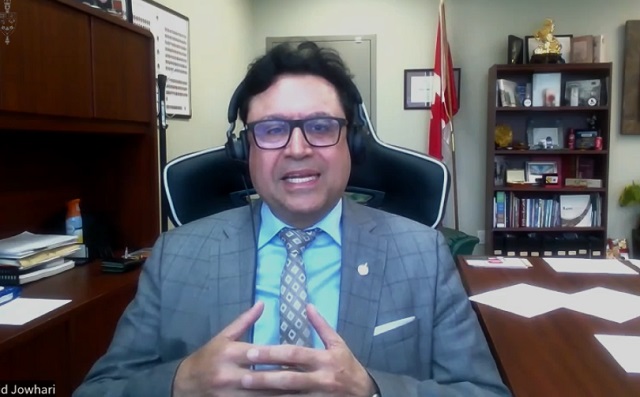
 Addictions2 days ago
Addictions2 days agoLiberals shut down motion to disclose pharma payments for Trudeau’s ‘safe supply’ drug program
-

 Energy2 days ago
Energy2 days agoTech giants’ self-made AI energy crisis
-
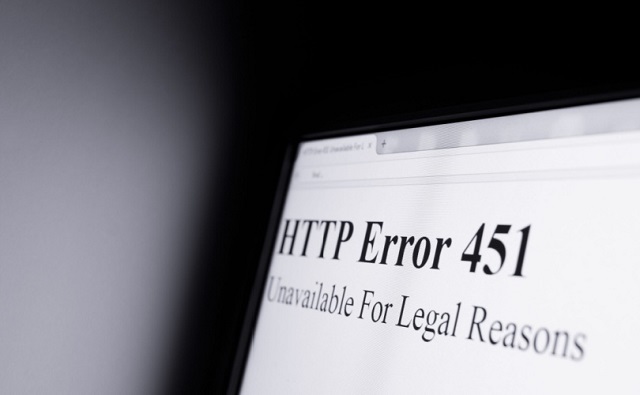
 National2 days ago
National2 days agoTrudeau’s internet censorship Bill C-11 will not be implemented until late 2025
-
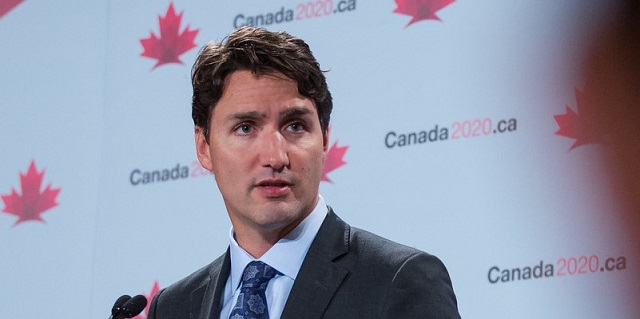
 Economy1 day ago
Economy1 day agoPrime minister’s misleading capital gains video misses the point
-
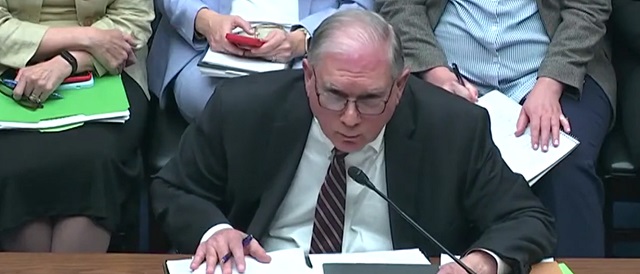
 COVID-1915 hours ago
COVID-1915 hours agoTop Fauci Aide Allegedly Learned To Make ‘Smoking Gun’ Emails ‘Disappear,’ Testimony Reveals
-

 COVID-199 hours ago
COVID-199 hours agoThe Vials and the Damage Done: Canada’s National Microbiology Laboratory Scandal, Part II
-

 Frontier Centre for Public Policy2 days ago
Frontier Centre for Public Policy2 days agoThe PM as Leaf’s coach



